Queer Lives: Narrations of Work Abroad (June 12)

It’s easy to forget sometimes that despite my relatively long stay in Mumbai, I haven’t actually spent a lot of time here. Much of the city remains unknown to me - crowded neighborhoods and street names that I struggle to wrap my tongue around. There is, however, one place that I could find my way to blindfolded, ears plugged, spun in a circle until I'm dizzy and tripping over my own feet. Exit the apartment, head down the market, and take the first right – then walk straight down, until you pass the auditorium and come to a crossroads. Swing left, and somehow try to cross the rows of traffic – I figure this is where my blindfold would prove remarkably inconvenient – but it’s no matter, because a few steps further, and you’re there: Waroda Road.
How do you know when a place becomes yours? I suppose when you start missing it – but I prefer to say that it’s when you have favourites. Although there are a million places to try in Bandra, from restaurants to cafes to Irish pubs, I will, most days, choose to come back here. I’ve described Waroda Road several times, waxing lyric about the quiet and the colour, the hush that settles over the green-topped bungalows. It’s not difficult; everywhere I look, there is something to capture: an orange cat perched on crumbling stone steps, the white armchair left out on the corner-house balcony, the richness of Subko hot chocolate. Poetry, quite literally, sits on the tongue.
I’ve found my way back here today, after a long and rather aimless meander about south Bandra. Technically, I’m meant to be helping Revathi Auntie with some errands – and by helping, I mean accompanying and requesting every few minutes that we stop to try whatever cafe we pass. By the time we reach Waroda, I’m already two drinks in, lips sticky with sweat and sugar. As we walk, I set my hand along the rough slab walls, tracing the chipped murals. One, tucked away in a shaded corner, features a cartoon man selling a piece of vada pav that’s nearly the size of his face; the stamp plastered above informs me that it’s worth 23 rupees, no change.
I suppose one of the reasons I enjoy coming here so much is that there’s rarely ever a point to it. We just wander. Waroda is, as I see it, a complete maze – small, nearly hidden alleys cut through the overhangs, and in each corner there’s a new turn to take. I think by now I’ve managed to map most of it in my head, but as we pass a deep orange house, I spot a path I don’t recognise – another alleyway, leading somewhere unexplored. I turn to Revathi Auntie, but she’s already there; we make a kind of game of it, trying to find all the secret pathways. This time, we end up at a garden, overgrown with weeds and bright red flowers.
My true delight from the day’s adventure, however, is far less elegant. As we make our way back to the road, I spot a deep purple sign, nearly invisible behind a drooping branch; it advertises, to my immense happiness, a matcha store. Like every other nineteen-year-old on the planet, I adore matcha – but for me, it’s not just the drink itself. Matcha is always the first step in my mornings, a dedicated fifteen minutes of single-minded preparation when I cannot be anywhere but present, slowly whisking the deep green powder. I often find it difficult to clear my head: most moments, I’m thinking about work, or that one article I need to read, or that music I’m supposed to learn. Small routines, I’ve learnt, are essential.
(I do, however, also love the drink itself, so when I walk out with a cup in hand, cool against my blistering palm, I’m ecstatic.)
Bidding goodbye to Waroda, we continue our journey. The minute we step out onto the main street, the heat hits like a wave: slamming, covering me from head to toe. We skirt along the sidewalk, hopping from patch to patch of shade, until we eventually end up at Cherry Fig – which, I learn, is in fact a local clothes store and not a fruit stall, despite its seemingly straightforward name. Whatever the inspiration, the selection is fantastic; I walk away with a white beaded dress, wrapped carefully in a paper bag.
It feels by now that we must have been out for ages, so I’m surprised when I check my watch – we only left the house a couple of hours ago! The heat is draining, stretching each minute like clay pulled apart, and I’m grateful when Revathi Auntie suggests we head back. It’s only a short walk to the house, and we’re back in minutes, settling gratefully under the spinning fans. I have the house to myself for the next few hours, as Revathi Auntie and Asok Uncle are leaving to meet some friends. As they lace their shoes, promising a quick return, I joke about all the chaos I will cause in their absence – be warned, I say, and they laugh and pull the door closed.
I then proceed to pour a cup of juice, grab my laptop, curl up on the couch, and work peacefully, content to sit with the slight breeze through the open windows. Oh, such chaos I have caused.
It really is a joy to sit here in the late afternoon, though. By now, the heat has dissipated somewhat, leaving a sheen of warmth easily broken by the inching wind. With the windows pulled wide, the breeze saunters in, curling around my legs and ruffling my hair – a welcome visitor after the midday sun. Sat in the living room, I can hear the traffic, the shouts of the street vendors, the low rumble of construction. It’s only when Revathi Auntie and Asok Uncle return that I register how much time has passed. More importantly, and quite suddenly, I realise how hungry I am, and rush off to the kitchen to grab a cup of soup.
I wonder, had they not returned, if I would have sat in that spot until dark – until I literally could not see the floor in front of me. I suppose I have found favourites beyond Waroda Road: all its bright, painted walls. This, too, I will miss when I’m gone – my legs thrown across the table and a slow fan above, the gradual evening wind. I close my eyes, try to memorise the feeling; within seconds, I’m asleep.
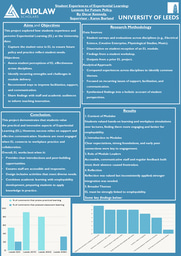
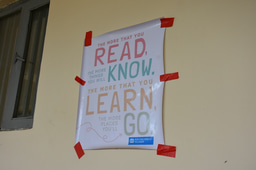
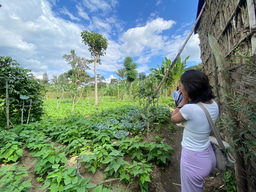
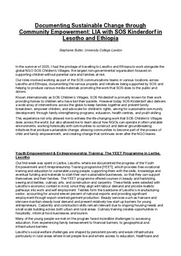
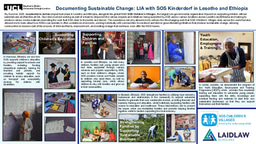
Please sign in
If you are a registered user on Laidlaw Scholars Network, please sign in